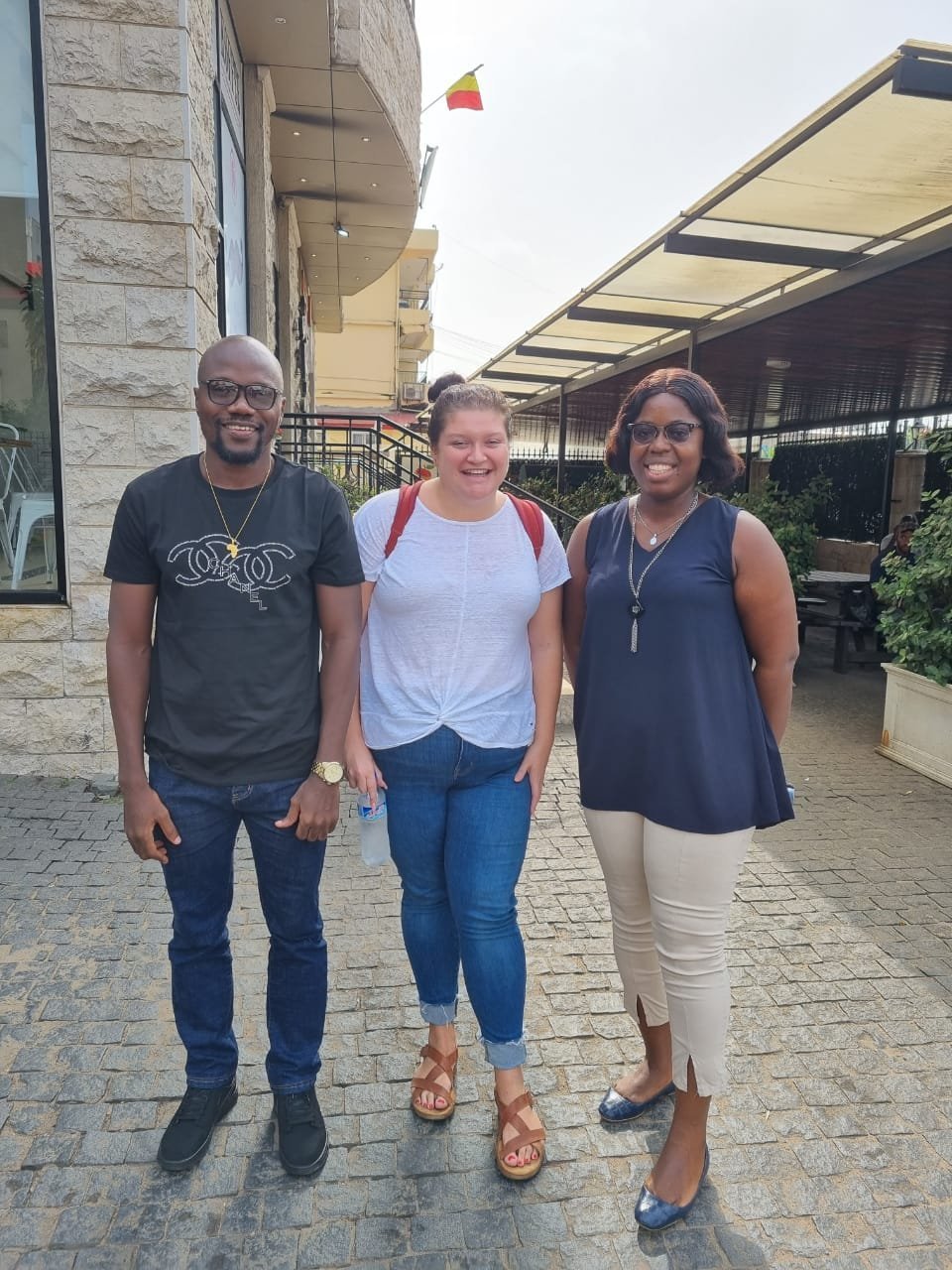Two Liberian Physicians Will Become Their Country’s First Cardiologists Through Uganda Heart Institute Fellowship
Emmanuel Gbee (left) and Angelina Killen (right) flank Amy McLaughlin of the NCDI Poverty Network Secretariat on one of their final days in Liberia before taking off to begin their cardiology fellowships at the Uganda Heart Institute.
Two young Liberian physicians – one an internist, the other a pediatrician – traveled to Uganda in mid-February to pursue three-year cardiology fellowships at the Uganda Heart Institute. Upon completion of their studies, Dr. Emmanuel Gbee and Dr. Angeline Killen will become Liberia’s first adult cardiologist and first pediatric cardiologist respectively. Under the leadership of the Ministry of Health of Liberia and in partnership with Partners In Health Liberia, the fellows will contribute greatly to capacity building for cardiology care and access to cardiology services throughout Liberia.
“I’m thrilled that the fellowship is about to begin, and I look forward to putting all my efforts into this,” said Dr. Gbee. “I’m a bit nervous about such a big change, but I’m prepared to make this change to help Liberia.”
At present, Liberia has no cardiologists. According to a 2021 World Health Organization (WHO) Report on the State of the Health Workforce in Africa, Liberia has one doctor for every 20,000 people, far below WHO’s recommended 1:1,000 doctor-to-patient ratio. The pediatrics field in Liberia is similarly understaffed, with only 20 pediatricians serving 2.1 million Liberian children according to a 2016 estimate by UNICEF. As a result of the lack of trained health workers, many children living with NCDs in rural communities are never diagnosed or treated. Specialty training for Liberian physicians like that offered through the Uganda Heart Institute Fellowship will greatly improve access to cardiology care.
Dr. Killen is confident that receiving cardiology training will help her as she strives to address gaps in Liberia’s healthcare system. “This is a dream come true for me. Fourteen years of civil war and the ebola virus outbreak of 2014 have weakened Liberia’s health system. But upon my return from Uganda, I will be able to get to work rebuilding a resilient health system in Liberia through pediatric care and policy. Cardiology training will allow me to provide mentorship to medical students, interns, and residents, contribute to developing Standard Operating Procedures (SOPs) and trainings for nurses and other health workers, and take up assignments in rural communities,” said Dr. Killen.
Dr. Gbee is similarly excited by the opportunity to become a lifelong teacher and is looking forward to educating medical students, colleagues, and other health care workers. “By taking on this new challenge and becoming a cardiologist, especially in a country that hasn't had its own, I will make a positive impact on the lives of my patients, especially the poor and vulnerable ones,” he said.

